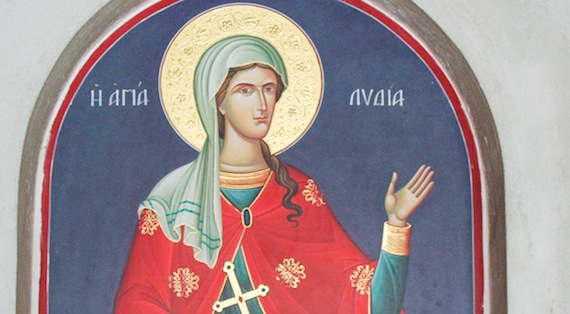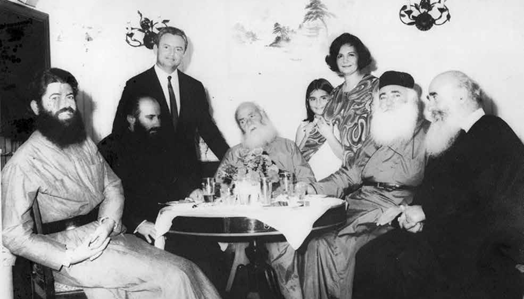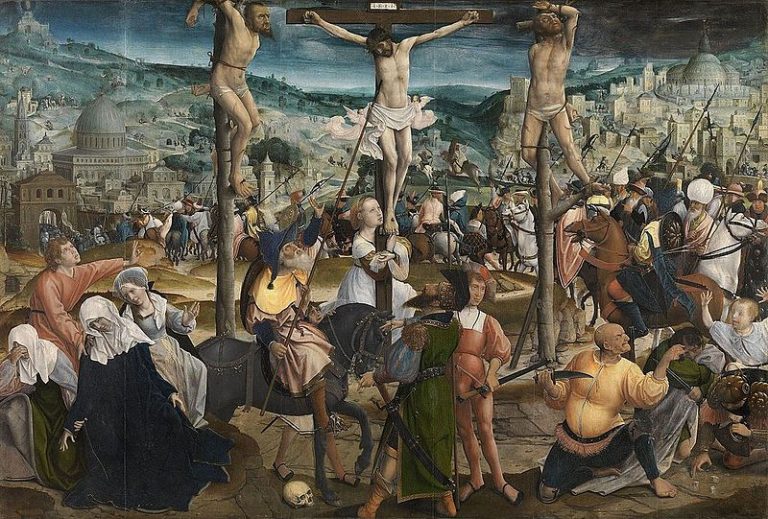Agia Lydia: Mission to the family
“A vessel of election” (Acts 9:15) was Paul “bearing the name of the Lord before the Gentiles”… How could he resist the plea of the godly Macedonian (Acts 16:9)? He obeyed and found himself preaching in Neapolis in Macedonia and in the city of Philippi, now in the region of Kavala. With the first steps of the apostle to the Gentiles in Europe, the beginnings of the Gospel of Jesus Christ to the barbarians, the first sunshine of virtues such as justice, equality, solidarity and love began to dawn. At the same time, a pure and benevolent being, Lydia, rejects the false gods of the Gentiles – which were constructed to first cover, and then cultivate, the passions of men – and finds herself in the synagogue longing to be taught about the true God. He came from Thyatira and was a merchant of purple cloth. By virtue of her profession – and in the greatest city in Macedonia – she would surely have been intelligent, active and industrious. She had heard Paul offer solutions to life’s dead ends, filling in and interpreting Old Testament prophecies, thus proving Jesus Christ as the expected Messiah. Lydia expresses her desire to be baptized a Christian, after “the Lord has opened her heart” (Pt 16:14). This fact reveals her good intentions, an essential element for every Christian in terms of approaching the faith.
Lydia was “baptized” (Acts 16:15), but not alone. She was led into the sacrament of baptism by her exhortations and living example, and her “household” (Acts 16:15). Surely her teacher Paul would have set her heart on fire, exhorting her in a similar way to Timothy: “If she does not take care of her own and even her own household, she denies the faith and is unfaithful to her own hands” (1 Tim. 5:8). Finally, her spirit of generosity is worthy of mention, asking to accommodate the Apostles and to give them rest in any way she could.

The Mission in the Family
“And a woman named Lydia, a purple-haired woman of the city of Thyatira, who reverenced God, heard the Lord open her heart to watch over those who were being baptized under Paul, and her household was baptized” (Acts 16:14-15). Lydia’s enthusiasm, her example, her unfeigned genuine love for God were among the traits that led her family to faith. Today, some of us who have taken up the work of the mission wear a mask that prompts people to cheer us on, to congratulate us for the work we do and our service! Unlike them, our family is neither attracted nor seduced by our work and sacrifice for our fellow man. Why?
Because a man with a mask cannot convince and cultivate his family. He does not make himself an example to be emulated but to be avoided, and as a result we often become the thorns in our family’s relationship with God.
There are many who wonder: What is the right thing to do? Should I hide my passions by practicing hypocrisy or should I reveal them at the risk of scandalizing my brothers? This can only be the dilemma of the absurd, or rather of Lucifer. If you apply the former, how will you differ from the scribes and Pharisees whom the Lord rebuked with those dreadful “ouches”? On the other hand, if you scandalize even one of your few brethren, is it not better to tie a stone around your neck and throw yourself into the sea? The answer has nothing to do with the dilemma. However, it is found clearly in the Gospel: Cut off your passions. Strive, sacrifice and cut them off. And if you doubt your abilities, do not forget the Pauline: “I am always strong inChrist” (Philippians 4:13). The love of mission to the nations has as its starting point the love of Christ, in whose person we meet first of all our family members, our neighbours, the people we associate with in our daily lives, and then people everywhere.




